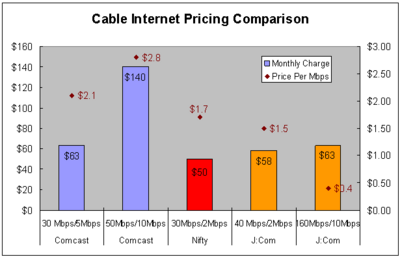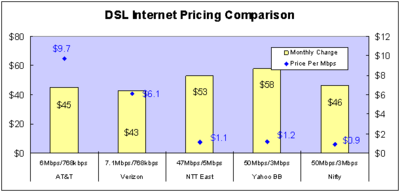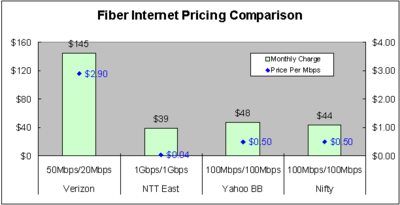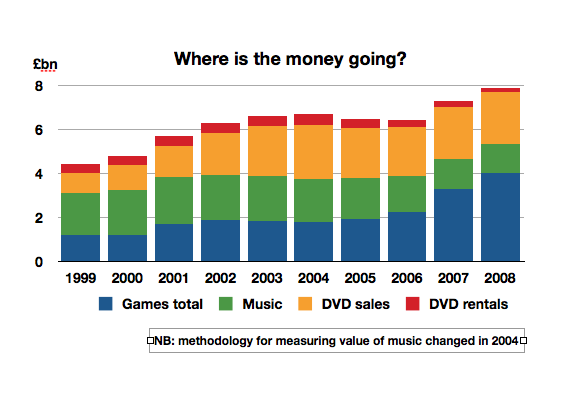But in Japan cable Internet service is of declining popularity, because 30 or 40 Mbps for $50 or $60 per month is not really fast there.
DSL in Japan goes up to 50 Mbps for also around $50-$60/month.
But for actual fast, cheap, Internet connections, people in Japan buy Fiber to the Home (FTTH), which actually costs less and delivers from 100Mbps to 1Gbps.
Meanwhile, back in the U.S.A., EDUCAUSE has proposed 100Mbps national broadband using a funding method that already failed in Texas.
Japan didn’t get to 100Mbps by a single government-funded network. It did it by actually enforcing competition among broadband providers. Why did it do this? Because a private entrepreneur, Masayoshi Son, and his company Softbank, pestered the Japanese government until it did so.
Thus it’s refreshing that these graphs laying out how far ahead of the U.S. Japan is come from the New America Foundation. Chair? Eric Schmidt, CEO of Google.





